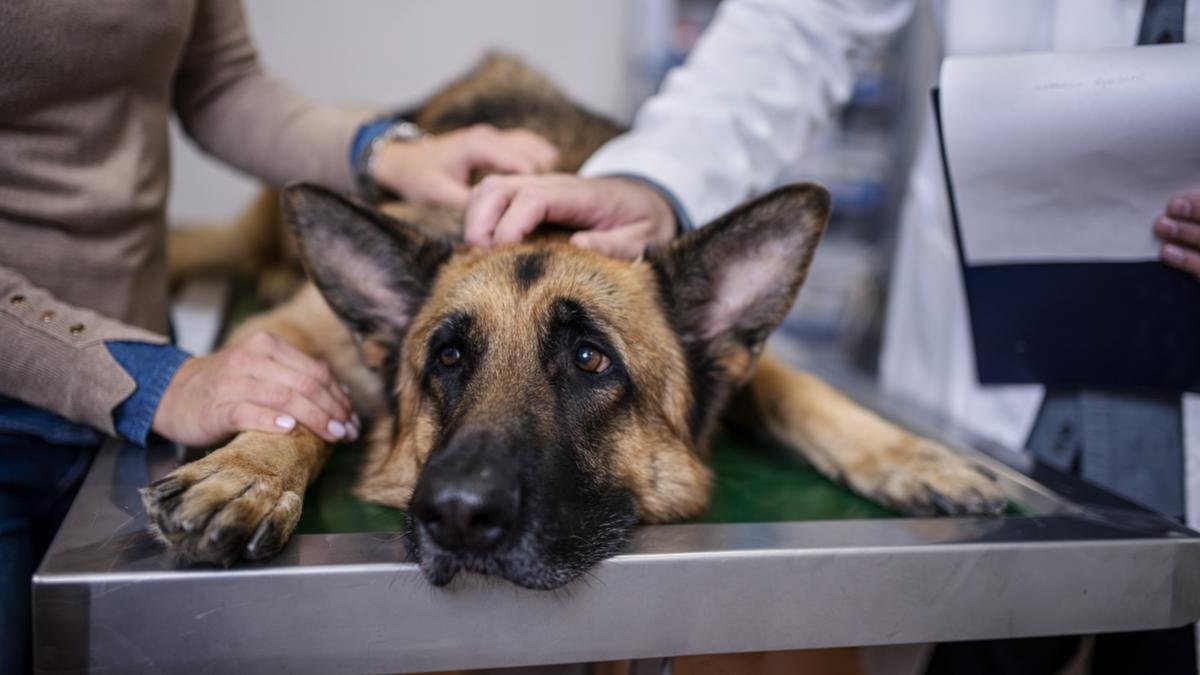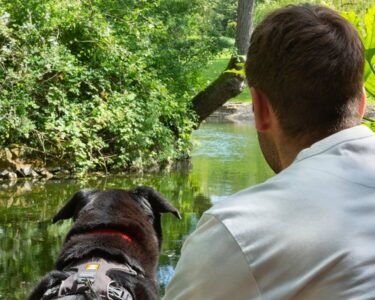A leading Australian veterinarian has offered advice to families who may have received the news no pet owner wants to hear.
Dr Elizabeth Arnott, chief veterinarian at RSPCA NSW, said when a pet receives a cancer diagnosis it can be ‘overwhelming’.
But while treating an animal may seem daunting and can be costly, there are various options available for owners.
Stream local 7NEWS free on 7plus
“If you speak to your vet, they should be able to give you advice that is specific to your pet and their particular diagnosis,” Arnott told 7NEWS.com.au.
Arnott explained cancer treatment options can vary from straightforward, to very advanced.
“There is also a lot of research available now that can help you understand survival rates and treatment options,” she said.
“And while we all do have an obligation as pet owners to seek professional advice and make sure our pet is not suffering … there is no obligation to undertake these really advanced treatments, as long as we ensure that we do anything required to control an animal’s pain and discomfort.”
She said when speaking with your vet about your options, it is worth thinking about your particular pet and their temperament.
“It is good to think about how you think they might handle visits to the vet, and different medications,” she said.
Costs
Treatment of cancer in pets can involve advanced procedures and expensive equipment, and often these costs are passed on to the owner.
Arnott explained that cost is currently a “major barrier” to getting treatment.
“So, it’s mostly a matter of working through with your veterinarian about what’s within your means and what’s reasonable for you and your pet,” she said.
“Just like in humans, you can go down the path of surgical approaches and medical oncology and there is even radiation therapy available to pets now.
“But all of these approaches often involve, really expensive equipment.”
However, Arnott added at the end of the day when discussing treatment options, it may be a matter of working not necessarily to find a cure but to make sure your animal is as comfortable as possible.
“That doesn’t have to come at extreme cost, necessarily, so it’s all about having that discussion and knowing what your options are and managing your expectations,” she said.
Prevention
In terms of preventative measures, Arnott said similar approaches that humans take can be applied to our pets.
“We don’t know what causes all cancers, but we do know that generally a healthy lifestyle may be protective,” she said.
“So taking a similar approach to our animals is prudent.”
Arnott suggested ensuring your pet is adequately protected from the sun and is limited to UV exposure may minimise the risk of skin cancer in animals.
“It’s all about avoiding those things that we do know cause cancer,” she said.
“A similar preventative approach that humans take may be applied to our furry friends to give them the best chance.”




